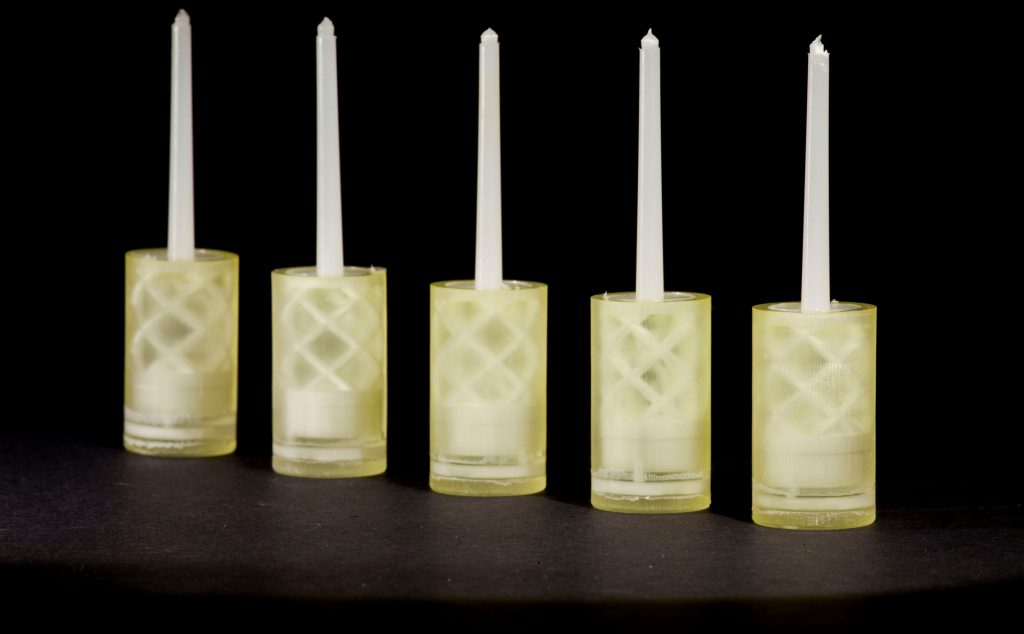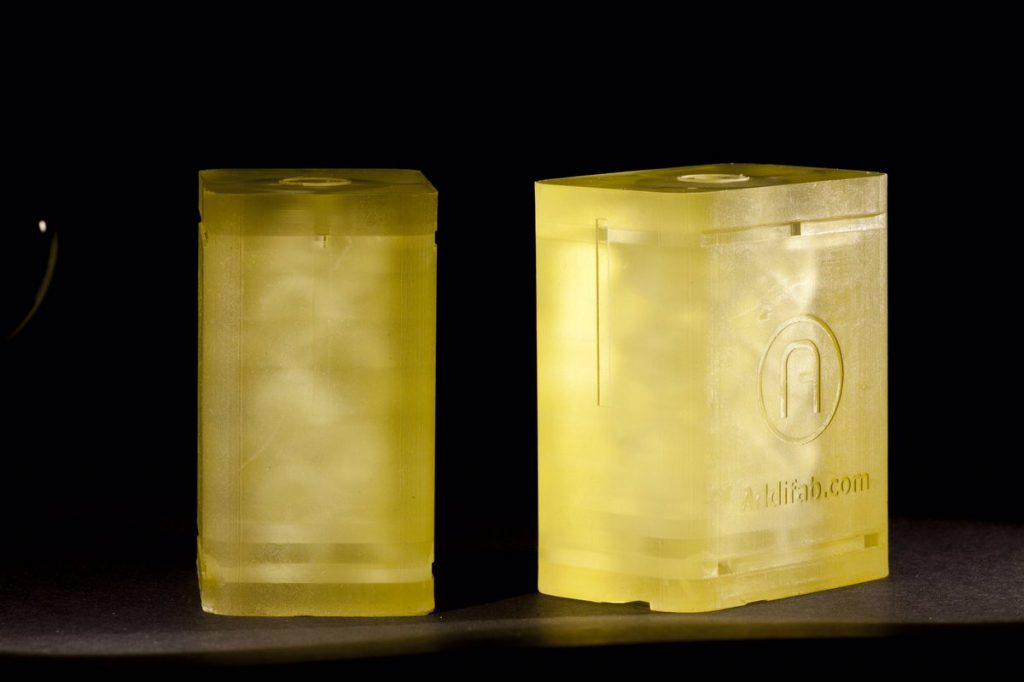Denmark-headquartered manufacturing provider AddiFab is seeking to change prototyping by combining additive manufacturing with formative technology. A novel approach, the company recently raised over $1.8 million in EU funding, and it has also confirmed an ongoing materials collaboration with Mitsubishi Chemical.
Exhibiting alongside the Japanese chemical giant next month, AddiFab has now confirmed its attendance at 2019’s RAPID + TCT show. In preparation for the event, and doubtless other public appearances throughout the year, we take a look at Freeform Injection Molding (FIM) technology and how it works.

AddiFab Freeform Injection Molding
FIM technology is a three step process. It begins with the digital design of a mold, which is then 3D printed via vat polymerization. After rinsing and post curing, the 3D printed mold is injected with a liquid metal, plastic (or soon ceramic) material, and the mold is dissolved in a water solution, leaving a solid cast part.
For this purpose, AddiFab has developed two machines over the past five years: the Add-Line Automatic and the Add-Line Manual. Designed to 3D print and store multiple build platforms, the main difference between these two machines is the level of automation integrated into post and pre build, and the number of items they can produce in a single batch. As an example, the Add-Line Manual can produce 20 hearing-aid shells or silicone molds; 15 molds for planet gears; and 45 dental crowns in a single batch. The Add-Line Automatic, with automated build plane exchange, storage, resin supply and build recovery, is capable of running for 48 hours without interruption producing thousands of parts.
Sidestepping 3D printing’s material shortage
One of the key challenges that AddiFab aims to overcome with its FIM technology is material availability within the developing 3D printing industry. Lasse Staal, AddiFab co-founder and CEO explains, “Injection molding—with a much richer legacy and R&D budgets dwarfing those of the AM industry—is churning out hundreds of specialized grades for every generic grade that is being converted to additive. And the materials converted to AM lose out on performance, compared with their injection-molded twins.”
“”[…] the race for materials is about to be thoroughly changed by AddiFab.”
Working with Mitsubishi Chemical, AddiFab technicians have been testing specific grades of the Japanese corporation’s Tefabloc and KyronMax injection moldable materials.
A type of high performance TPE “Tefabloc,” according to Jon Jessen, AddiFab co-founder and chief innovation officer, “is probably the easiest-to-mold elastomer we have ever worked with. The material parameters were extremely easy to dial in, and we were quickly able to overmold, as well as demonstrate the geometric complexity that is possible with Freeform Injection Molding.”
KyronMax on the otherhand are a group of renifroced polymers. “KyronMax engineering plastics are among the most competitive materials in the Mitsubishi Chemical portfolio for metal replacement in structural applications,” comments Jeff Gerbec, Regional Technology Manager at Mitsubishi Chemical America.
“With Freeform Injection Molding, we can achieve outstanding material properties on an additive platform while using our current feedstocks. We are currently testing KyronMAX’s high-performance property retention when used with FIM technology, and the first results are very promising.”

$1.8 million from Horizon 2020
AddiFab was awarded over $1.8 million in funding to advanced its FIM approach for ceramic and metal casting in March 2019. The money for this development was provided by the European Union’s Horizon 2020 program, which also provided €10.6 million to 3D printed electronics development at the Danish Technological Institute (DTI) this month.
AddiFab will present its FIM technology at the 2019 RAPID + TCT show in Detroit next month alongside Mitsubishi Chemical at booth 2105.
3D Printing Industry will be reporting live from RAPID + TCT May 20 through 23, 2019. To stay up to date with all the latest news and releases from this event and more, subscribe to the 3D Printing Industry newsletter, follow us on Twitter and like us on Facebook.
Voting for the 2019 3D Printing Industry Awards in now open. Chose your Innovation of the Year now.
Seeking jobs in engineering? Make your profile on 3D Printing Jobs, or advertise to find experts in your area.
Featured image shows close-up double helix 3D printed by AddiFab. Photo via AddiFab



